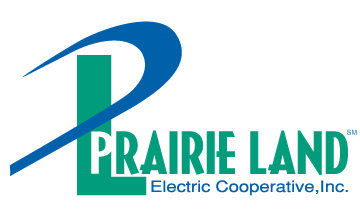This content was featured in the July 2023 issue of Kansas Country Living.
We hear a lot about peak energy demand, but what is it and how does it impact electricity use? As the name implies, peak energy demand occurs when energy consumption is at its highest. In much of the U.S., energy use spikes in summer and winter due to the need to heat and cool indoor spaces.
Although it depends on where you live, summertime energy demand increases when outdoor temperatures soar. For Prairie Land Electric, peak demand is generally on weekdays between 3-7 p.m., when most individuals are returning home, cooking dinner and preparing for evening activities. In the winter, there are two high-use times of day: early morning and late afternoon/evening. For Prairie Land Electric, peak usage in winter is from 8-11 a.m. Weekends and holidays are typically considered off peak.
Changing the time of day for some of your energy usage can mitigate the amount the cooperative pays to purchase electricity for our members and aids in our commitment to meeting everyone’s energy needs. To do this, consider running major appliances during off-peak times; smart devices or appliances that have delay starts can help achieve this goal.
Do your part to use energy wisely when temperatures are high. In the summer months, help decrease demand by doing the following:
•Turn your thermostat temperature up by 2 degrees or more and program your thermostat to a higher temperature when no one is home.
•If you do not have one, consider purchasing a smart thermostat.
•Make sure your HVAC system is in good working order. Remember to keep your unit and the area around it clean and clear.
•Use bathroom and kitchen fans temporarily to remove heat and humidity. Remember: Fans cool people, not rooms. Turn them off before you leave the room.
•Use your countertop toaster, air fryer and/or convection oven instead of your oven. Even better, keep the heat outside by cooking food on the grill.
•Use major appliances in the early morning or late evening. Delay turning on your dishwasher or clothes washer until you are heading to bed.
•Program smart devices to run appliances at off-peak times.
•Close window coverings during the hottest part of the day.
•Use minimal lighting and try using LED lighting instead of traditional incandescent bulbs.
•Turn off and disconnect electronics that are not in use.
•Turn off stand-alone dehumidifiers.
Making small changes to conserve energy can help even out energy use, save money on your utility bill and avoid service interruptions caused by high demand.
